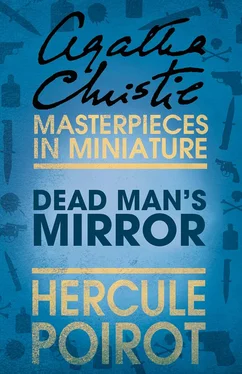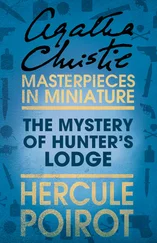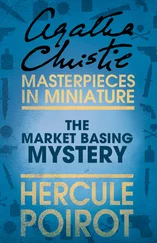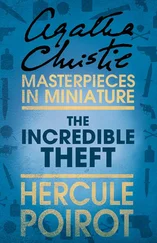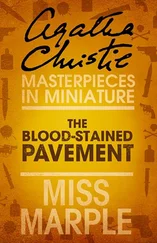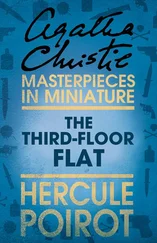Agatha Christie - The Dead Man’s Mirror - A Hercule Poirot Short Story
Здесь есть возможность читать онлайн «Agatha Christie - The Dead Man’s Mirror - A Hercule Poirot Short Story» — ознакомительный отрывок электронной книги совершенно бесплатно, а после прочтения отрывка купить полную версию. В некоторых случаях можно слушать аудио, скачать через торрент в формате fb2 и присутствует краткое содержание. Жанр: unrecognised, на английском языке. Описание произведения, (предисловие) а так же отзывы посетителей доступны на портале библиотеки ЛибКат.
- Название:The Dead Man’s Mirror: A Hercule Poirot Short Story
- Автор:
- Жанр:
- Год:неизвестен
- ISBN:нет данных
- Рейтинг книги:3 / 5. Голосов: 1
-
Избранное:Добавить в избранное
- Отзывы:
-
Ваша оценка:
- 60
- 1
- 2
- 3
- 4
- 5
The Dead Man’s Mirror: A Hercule Poirot Short Story: краткое содержание, описание и аннотация
Предлагаем к чтению аннотацию, описание, краткое содержание или предисловие (зависит от того, что написал сам автор книги «The Dead Man’s Mirror: A Hercule Poirot Short Story»). Если вы не нашли необходимую информацию о книге — напишите в комментариях, мы постараемся отыскать её.
The Dead Man’s Mirror: A Hercule Poirot Short Story — читать онлайн ознакомительный отрывок
Ниже представлен текст книги, разбитый по страницам. Система сохранения места последней прочитанной страницы, позволяет с удобством читать онлайн бесплатно книгу «The Dead Man’s Mirror: A Hercule Poirot Short Story», без необходимости каждый раз заново искать на чём Вы остановились. Поставьте закладку, и сможете в любой момент перейти на страницу, на которой закончили чтение.
Интервал:
Закладка:
Then, with a slight air of performing a duty long overdue, she glanced round her vaguely and murmured:
‘I expect you know everybody.’
Though this was patently not the case, the phrase was clearly a well-worn formula by means of which Lady Chevenix-Gore spared herself the trouble of introduction and the strain of remembering people’s right names.
Making a supreme effort to meet the difficulties of this particular case, she added:
‘My daughter – Ruth.’
The girl who stood before him was also tall and dark, but she was of a very different type. Instead of the flattish, indeterminate features of Lady Chevenix-Gore, she had a well-chiselled nose, slightly aquiline, and a clear, sharp line of jaw. Her black hair swept back from her face into a mass of little tight curls. Her colouring was of carnation clearness and brilliance, and owed little to make-up. She was, so Hercule Poirot thought, one of the loveliest girls he had seen.
He recognized, too, that she had brains as well as beauty, and guessed at certain qualities of pride and temper. Her voice, when she spoke, came with a slight drawl that struck him as deliberately put on.
‘How exciting,’ she said, ‘to entertain M. Hercule Poirot! The old man arranged a little surprise for us, I suppose.’
‘So you did not know I was coming, mademoiselle?’ he said quickly.
‘I hadn’t an idea of it. As it is, I must postpone getting my autograph book until after dinner.’
The notes of a gong sounded from the hall, then the butler opened the door and announced:
‘Dinner is served.’
And then, almost before the last word, ‘served’, had been uttered, something very curious happened. The pontificial domestic figure became, just for one moment, a highly-astonished human being …
The metamorphosis was so quick and the mask of the well-trained servant was back again so soon, that anyone who had not happened to be looking would not have noticed the change. Poirot, however, had happened to be looking. He wondered.
The butler hesitated in the doorway. Though his face was again correctly expressionless, an air of tension hung about his figure.
Lady Chevenix-Gore said uncertainly:
‘Oh, dear – this is most extraordinary. Really, I – one hardly knows what to do.’
Ruth said to Poirot:
‘This singular consternation, M. Poirot, is occasioned by the fact that my father, for the first time for at least twenty years, is late for dinner.’
‘It is most extraordinary –’ wailed Lady Chevenix-Gore. ‘Gervase never –’
An elderly man of upright soldierly carriage came to her side. He laughed genially.
‘Good old Gervase! Late at last! Upon my word, we’ll rag him over this. Elusive collar-stud, d’you think? Or is Gervase immune from our common weaknesses?’
Lady Chevenix-Gore said in a low, puzzled voice:
‘But Gervase is never late.’
It was almost ludicrous, the consternation caused by this simple contretemps . And yet, to Hercule Poirot, it was not ludicrous … Behind the consternation he felt uneasiness – perhaps even apprehension. And he, too, found it strange that Gervase Chevenix-Gore should not appear to greet the guest he had summoned in such a mysterious manner.
In the meantime, it was clear that nobody knew quite what to do. An unprecedented situation had arisen with which nobody knew how to deal.
Lady Chevenix-Gore at last took the initiative, if initiative it can be called. Certainly her manner was vague in the extreme.
‘Snell,’ she said, ‘is your master –?’
She did not finish the sentence, merely looked at the butler expectantly.
Snell, who was clearly used to his mistress’s methods of seeking information, replied promptly to the unspecified question:
‘Sir Gervase came downstairs at five minutes to eight, m’lady, and went straight to the study.’
‘Oh, I see –’ Her mouth remained open, her eyes seemed far away. ‘You don’t think – I mean – he heard the gong?’
‘I think he must have done so, m’lady, the gong being immediately outside the study door. I did not, of course, know that Sir Gervase was still in the study, otherwise I should have announced to him that dinner was ready. Shall I do so now, m’lady?’
Lady Chevenix-Gore seized on the suggestion with manifest relief.
‘Oh, thank you, Snell. Yes, please do. Yes, certainly.’
She said, as the butler left the room:
‘Snell is such a treasure. I rely on him absolutely. I really don’t know what I should do without Snell.’
Somebody murmured a sympathetic assent, but nobody spoke. Hercule Poirot, watching that room full of people with suddenly sharpened attention, had an idea that one and all were in a state of tension. His eyes ran quickly over them, tabulating them roughly. Two elderly men, the soldierly one who had spoken just now, and a thin, spare, grey-haired man with closely pinched legal lips. Two youngish men – very different in type from each other. One with a moustache and an air of modest arrogance, he guessed to be possibly Sir Gervase’s nephew, the one in the Blues. The other, with sleek brushed-back hair and a rather obvious style of good looks, he put down as of a definitely inferior social class. There was a small middle-aged woman with pince-nez and intelligent eyes, and there was a girl with flaming red hair.
Snell appeared at the door. His manner was perfect, but once again the veneer of the impersonal butler showed signs of the perturbed human being beneath the surface.
‘Excuse me, m’lady, the study door is locked.’
‘Locked?’
It was a man’s voice – young, alert, with a ring of excitement in it. It was the good-looking young man with the slicked-back hair who had spoken. He went on, hurrying forward:
‘Shall I go and see –?’
But very quietly Hercule Poirot took command. He did it so naturally that no one thought it odd that this stranger, who had just arrived, should suddenly assume charge of the situation.
‘Come,’ he said. ‘Let us go to the study.’
He continued, speaking to Snell:
‘Lead the way, if you please.’
Snell obeyed. Poirot followed close behind him, and, like a flock of sheep, everyone else followed.
Snell led the way through the big hall, past the great branching curve of the staircase, past an enormous grandfather clock and a recess in which stood a gong, along a narrow passage which ended in a door.
Here Poirot passed Snell and gently tried the handle. It turned, but the door did not open. Poirot rapped gently with his knuckles on the panel of the door. He rapped louder and louder. Then, suddenly desisting, he dropped to his knees and applied his eye to the keyhole.
Slowly he rose to his feet and looked round. His face was stern.
‘Gentlemen!’ he said. ‘This door must be broken open immediately!’
Under his direction the two young men, who were both tall and powerfully built, attacked the door. It was no easy matter. The doors of Hamborough Close were solidly built.
At last, however, the lock gave, and the door swung inwards with a noise of splintering, rending wood.
And then, for a moment, everyone stood still, huddled in the doorway looking at the scene inside. The lights were on. Along the left-hand wall was a big writing-table, a massive affair of solid mahogany. Sitting, not at the table, but sideways to it, so that his back was directly towards them, was a big man slouched down in a chair. His head and the upper part of his body hung down over the right side of the chair, and his right hand and arm hung limply down. Just below it on the carpet was a small, gleaming pistol …
There was no need of speculation. The picture was clear. Sir Gervase Chevenix-Gore had shot himself.
Читать дальшеИнтервал:
Закладка:
Похожие книги на «The Dead Man’s Mirror: A Hercule Poirot Short Story»
Представляем Вашему вниманию похожие книги на «The Dead Man’s Mirror: A Hercule Poirot Short Story» списком для выбора. Мы отобрали схожую по названию и смыслу литературу в надежде предоставить читателям больше вариантов отыскать новые, интересные, ещё непрочитанные произведения.
Обсуждение, отзывы о книге «The Dead Man’s Mirror: A Hercule Poirot Short Story» и просто собственные мнения читателей. Оставьте ваши комментарии, напишите, что Вы думаете о произведении, его смысле или главных героях. Укажите что конкретно понравилось, а что нет, и почему Вы так считаете.
